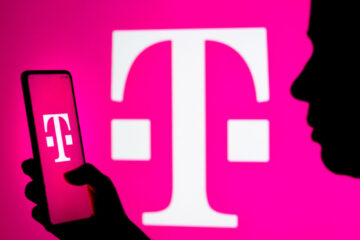U.S. and British intelligence agencies levied accusations against China that the country has denied while also accusing the West of hypocrisy.
President Joe Biden’s administration has taken a different tact towards China than his predecessor.
That’s particularly true in the case of trade and industrial espionage.
Donald Trump opted for confronting Beijing by imposing sanctions due to what he called unfair trade practices, pressuring ByteDance, parent company of social media platform TikTok, to sell its U.S. assets, and even threatening to cut off relations with the country of 1.4 billion.
The wisdom and efficacy of this approach has been scrutinized in the months since Trump left the White House.
Biden has been less aggressive publicly in his dealings with the Peoples Republic than Trump.
Over the July 4 weekend, Bloomberg and the Wall Street Journal both reported that the Biden administration is considering removing some of Trump’s tariffs on China, in part to ease some inflationary pressures.
Politico reported that Biden is considering lifting about $10 billion worth of tariffs against China. While that’s just a fraction of the $370 billion imposed by Trump, the move still can be seen as an olive branch.
Despite this softer approach on the economic end, a couple of very public rebukes of the country’s state-sponsored hacking apparatus could signal a shift in tactics for the administration.
FBI, MI5 Accuse China of Cyber Attacks
On July 6 the heads of the FBI and MI5, Britain’s intelligence service, made a rare joint appearance at MI5 headquarters to issue a warning to business leaders around the world about cyber threats originating from China.
The attacks are aimed at stealing intellectual property from Western technology companies they warned.
“The Chinese government is set on stealing your technology—whatever it is that makes your industry tick—and using it to undercut your business and dominate your market,” FBI Director Christopher Wray said, according to the Journal.
China did not take kindly to the accusations from the West with foreign ministry spokesperson Zhao Lijian levying accusations against the U.S.
“Facts have fully proven that the U.S. is the biggest threat to world peace and development. We urge the U.S. intelligence official to correct his mentality, view China’s development objectively and rationally, stop spreading rumors, and stop making irresponsible remarks,” Lijian said.
“The published alarmist reports out of nothing, completely projecting their own disgraceful behavior onto China. Their purpose was to play up the China threat theory and provoke confrontation.”
The Western law enforcement agencies contend Chinais utilizing a global network of intelligence operatives to gain access to technology that it considers important.
That warning came along with a notice released by the U.S. National Counterintelligence and Security Center saying that China is holding an aggressive and escalating campaign to lobby and otherwise influence state, local, tribal and business leaders.
American Tech in China
For decades American companies tech companies have tried, with varying degrees of success, to gain access to the Chinese market.
While companies like Apple (AAPL) – Get Apple Inc. Report and Tesla (TSLA) – Get Tesla Inc. Report have successfully gained footholds in the country, others like Meta Platforms (META) – Get Meta Platforms Inc. Report and Google (GOOGL) – Get Alphabet Inc. Report have not.
For the companies that do have a presence in China, the country can be a political and cybersecurity minefield.
Last month the northern Chinese district of Beidaihe, home to a beach resort in the northern Hebei province, banned all Tesla cars from entering its territory for the next two months.
A Beidaihe Traffic Police Brigade told Reuters that the Tesla ban was instituted due to a matter of “national affairs.”
China has already banned Teslas from an entire territory once before. At the start of month, the city of Chengdu in the Sichuan province barred any Teslas from driving on certain roads. This ban coincided with Chinese President Xi Jinping’s visit to the city.
Meanwhile Apple reportedly made a five-year agreement worth $275 billion with the Chinese government to help improve the country’s economy and technological profile through investments.


